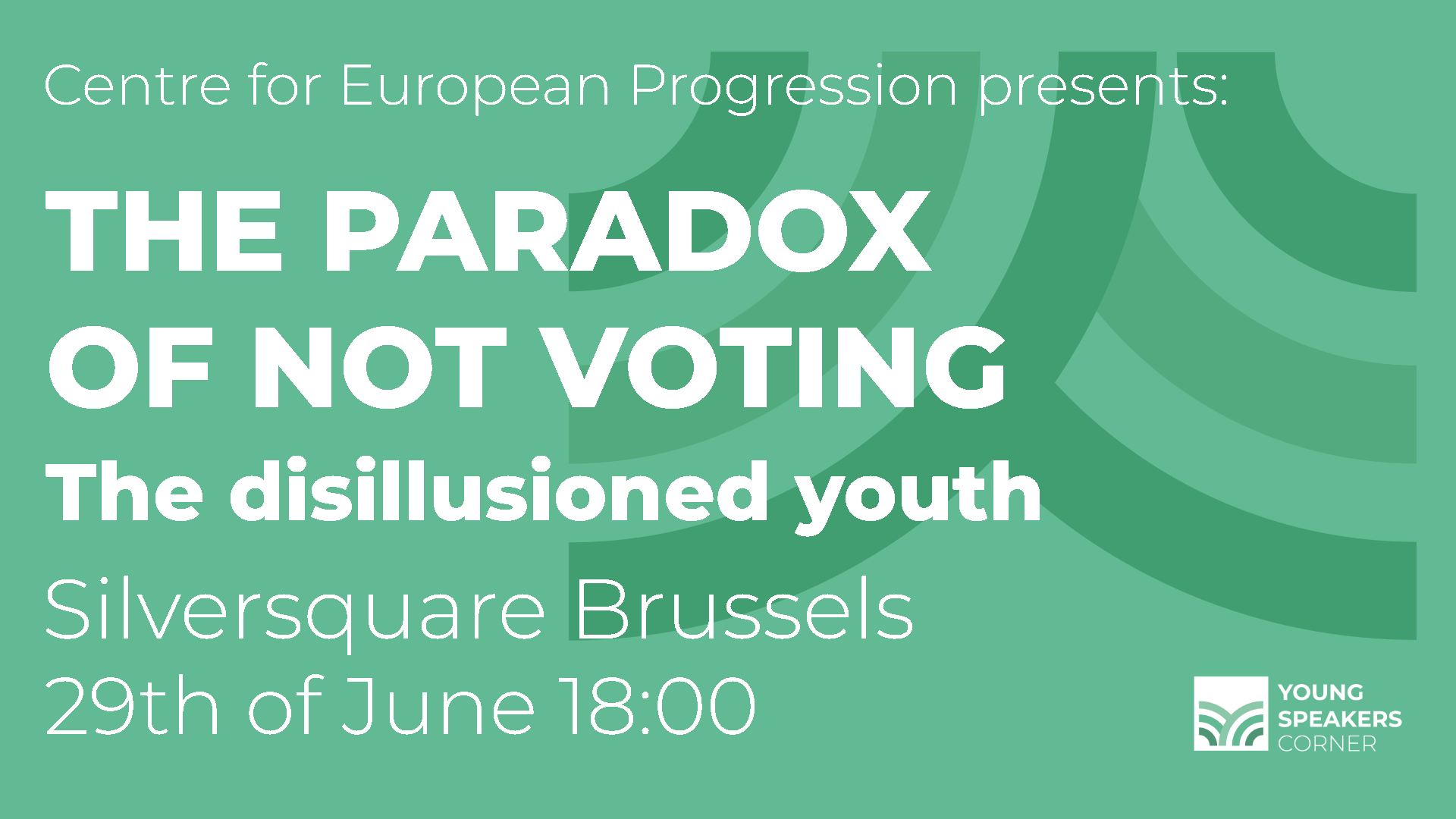Looking around in the current political climate in Europe, we wanted to tackle the issue of the participation of young people in voting – or rather the reasons for their non-participation.
Preparing for the event, we posed three questions:
- What do you think prevents young people from participating in the voting process?
- What are your personal experiences when it comes to voting or not voting?
- How could we engage young people to vote in a way that resonates with them?
We wanted to have an informal event, discussing these questions. We started by talking about some personal experiences from Hungary (focusing on the 2022 parliamentary elections ), Scotland (addressing the 2016 United Kingdom European Union membership referendum) and Belgium (where participation is actually mandatory). Then we brought up some interesting examples provided by the study of the European Parliament titled Young people’s participation in European democratic processes – How to improve and facilitate youth involvement.
We delved into the results of the following two surveys conducted by the European Parliament, trying to understand the background behind the answers – like “I don’t have time”.
We also examined the following elements of participation mentioned in the study:
- not being able to participate (lack of resources)
- not wanting to participate (lack of psychological commitment)
- not being asked to participate (lack of recruitment networks)
We tried to put some theories of participation into practice by coming up with examples to confirm or contradict them. The life cycle effect states that participation increases from youth to middle age and then slowly decreases towards old age. In reality, the older generation is more active, for example in Hungary. According to the period effect, political, social and economic episodes or ideologies can strongly shape participation behaviour, just like extraordinary events in history. We don’t have to look far, we’ve had the Covid pandemic in the past few years, and we’ve witnessed climate change for a while now. Last, but not least, the generational effect deals with the importance of individuals’ pre-adolescent socialisation – to which we can all give an example from our own personal environment.
We discussed how the internet has become a medium that has become a tool of radicalisation. Websites such as YouTube and Facebook create echo chambers and function to feed people the content that they wish to receive.
On this topic, we noted that the European Union has set a policy plan called the Digital Education Action Plan to provide digital education so that people are educated on how radicalisation on the internet works. The centre is also providing a digital campaign on the topic of the European elections in 2024 to combat extreme politics.
On the topic of the reticence of the youth cohort voting, we remarked on how the youth cohort lacks the political trust in the current political system. Moreover, there’s a severe lack of political identification or motivation in the youth cohort due to a lack of policies aimed at the youth in particular. We mentioned how this is a vicious cycle as the political system relies on the fact that the youth don’t vote, and therefore turn their attention nearly every time to policies that attract votes from older generations.
Next we turned to the chronic issues that have stoked a sense of apathy amongst young voters, such as the effects of globalisation that have made society more individualistic; lacking a strong social contract which exhibits shared values, identities, and outlooks. Moreover, chronic revelations of politicians who are self-interested, power hungry, and corrupt underscore the belief of young voters that the system is broken and to engage with it is not an option for them. The belief: why support a system that is broken? There lies no change or progress here.
We commented on how the near catastrophic effects of global warming have equally demoralised young voters as they apparently don’t believe the system will survive, particularly due to many politicians not taking the crisis seriously. This further ferments the feeling that the current political infrastructure is systemically broken.
We then turned to the characteristics amongst young voters today that both keeps them from not voting and of which are used to criticise them. These are: impatience; lacking the ability to talk to those who hold different views; not being realistic. In turn, we discussed how the global discourse on the lack of young people voting can often just turn on criticisms of the youth, while lacking a comprehensive investigation on how previous generations have allowed for an apparent broken system with entrenched injustice.
Finally, we summarised that the problems lay with chronic dog-whistle politics; a policy of divide and conquer to turn groups of people against each other. The solution? We must devise a way to bring people together; to create forums of conversation and discussion. This could be fashioned, for example, in the form of citizen assemblies or a large-scale political campaign led by the major parties.
For the study of the European Parliament, open the link: click here

